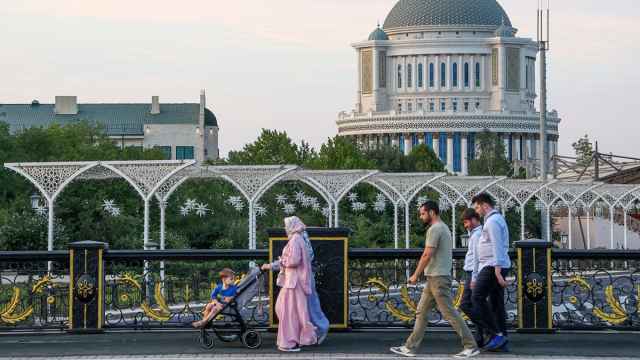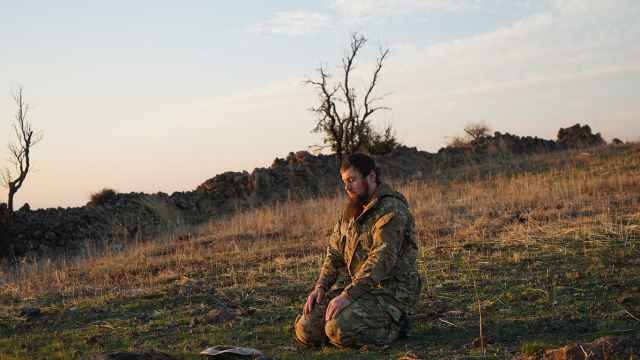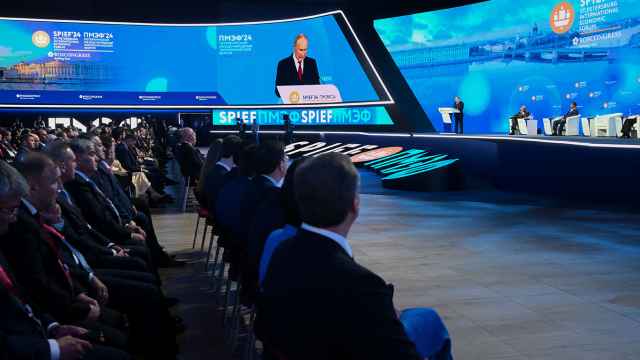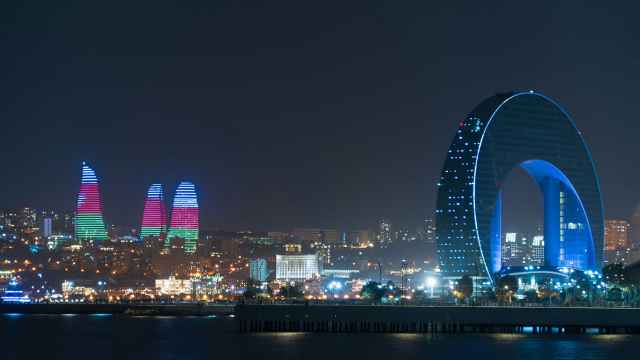Russia may see an inflow of capital this year as high oil prices offset the political uncertainty before national elections that fueled an outflow since last year, Finance Minister Alexei Kudrin said.
"Higher risks remain ahead of elections in a country like ours, in which so much depends on leadership," Kudrin told reporters Thursday. "Many investors decided to hedge their risks."
The world's biggest energy exporter is scheduled to hold parliamentary elections in December and a presidential poll next year. The country needs to ensure a credible vote to receive "the mandate of trust necessary for economic reform" to spur growth and cut dependence on energy, Kudrin said Feb. 19.
Russia's net outflow of capital reached $38.3 billion in 2010, more than the official $22 billion forecast. That compared with $56.9 billion a year earlier, Central Bank data published Jan. 13 showed. The country last had a net inflow in 2007, when it reached $81.7 billion.
The disappearance of "revolutionary expectations" mean that they will no longer be a factor because "high oil prices will create the opposite movement," Kudrin said.
The country saw net outflows in January and capital flight probably continued last month as investors sought safer assets and diversified risks, Central Bank First Deputy Chairman Alexei Ulyukayev said March 1.
Kudrin echoed comments by Arkady Dvorkovich, President Dmitry Medvedev's top economic adviser, who said in a Jan. 19 interview with Gazeta.ru that uncertainty about the outcome of the presidential election in 2012 could be contributing to capital outflows.
Medvedev wants to run again in 2012, Dvorkovich said last year.
Corruption and the "unimproving situation in specific regions" play a greater role in driving outflows, according to Dvorkovich. Kudrin, who said last month he was under "strong" pressure to increase spending to help win voters, said Thursday that corruption and bureaucracy are stymieing state governance.
Russia is the world's most corrupt major economy, ranking alongside Tajikistan and Kenya in this year's Transparency International Corruption Perceptions Index.
The Organization for Security and Cooperation in Europe's main election monitoring bodies refused to observe Russia's 2008 presidential election, saying they would be restricted in their duties and there was not enough competition among candidates.
Outflows from Russia intensified after the Sept. 28 firing of Yury Luzhkov, Moscow's mayor for 18 years, according to Alexei Moiseyev, chief economist at VTB Capital. Officials who were concerned that his ouster might prompt more dismissals or a crackdown on corruption sent their money out of Russia, Moiseyev said in an interview on Jan. 13.
The ruble will pare gains in the second half as speculation that leaders will "clean out" the bureaucracy before the elections spurs officials to send their money offshore, VTB Capital said.
The ruble is the world's best-performing currency against the dollar this year. Urals crude gained 22 percent in 2011 and traded at $112.46 a barrel Thursday, near the highest level since August 2008.
A Message from The Moscow Times:
Dear readers,
We are facing unprecedented challenges. Russia's Prosecutor General's Office has designated The Moscow Times as an "undesirable" organization, criminalizing our work and putting our staff at risk of prosecution. This follows our earlier unjust labeling as a "foreign agent."
These actions are direct attempts to silence independent journalism in Russia. The authorities claim our work "discredits the decisions of the Russian leadership." We see things differently: we strive to provide accurate, unbiased reporting on Russia.
We, the journalists of The Moscow Times, refuse to be silenced. But to continue our work, we need your help.
Your support, no matter how small, makes a world of difference. If you can, please support us monthly starting from just $2. It's quick to set up, and every contribution makes a significant impact.
By supporting The Moscow Times, you're defending open, independent journalism in the face of repression. Thank you for standing with us.
Remind me later.





